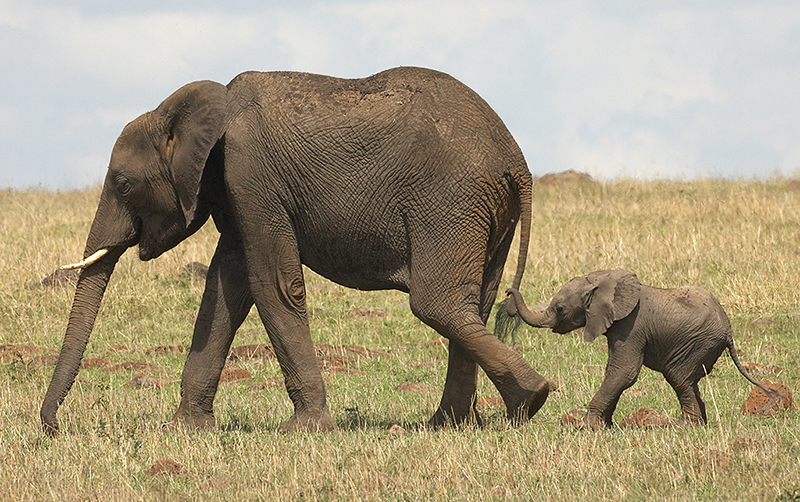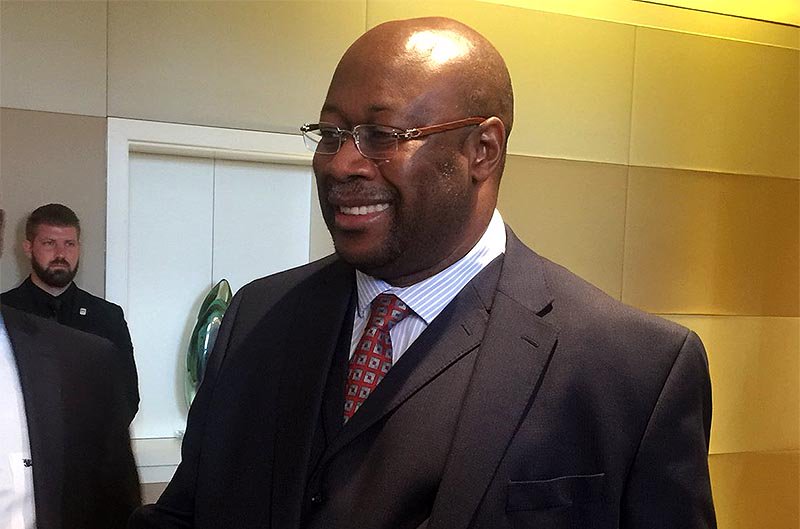BULAWAYO – Zimbabwe must safeguard its elephant herd or the country may have none to boast about in 10 years, says Kenyan wildlife conservationist Jim Justus Nyamu.
Nyamu is on a 4,300km walk from Kenya to South Africa raising awareness on the dwindling numbers of elephants in Africa.
“From 1970 to 1975, Africa had 3.5 million elephants. Zimbabwe had 210,000 elephants, Kenya 167,000 elephants but today according to 2016 latest data, Africa has 415,000 elephants. In a span of 40 years, the continent has lost three million elephants,” he said in Bulawayo, after arriving from Victoria Falls on September 25.
Currently, Zimbabwe has a population of only 66,000 elephants down from 84,000 in 2007.
Nyamu walked almost 400km from Victoria Falls, talking to communities along the way on the importance of co-existing with wildlife.
“Many people I have met along the way such as different paramount chiefs, headmen, young children, women, churches, men – everywhere – there is this notion that Zimbabwe has more elephants than it can carry. I had a meeting with senior lecturers at Lupane and I told them that Zimbabwe does not have enough elephants because the 66,000 that are here can be wiped in the next 10 years.
“From 2007 to 2016, Zimbabwe lost 20,000 elephants and from such figures, the country only needs another 10 years to finish what is available. Hwange National Park has the largest number of national elephants at 44,000,” said the elephant specialist.
Nyamu started his walk on July 14 from Kenya. The latest walk is the 14th such mission he has embarked on to save elephants. His previous walk was in December last year in the United Kingdom.
He has also walked in the United States, from Massachusetts to Washington D.C.
“It’s been fun to walk along the highway regardless of the temperatures that are very high,” he said.
The conservationist said he had received a lot of support locally, more than what he has experienced in his home country.
“I know your country is experiencing a lot of challenges with finances and we’ve been unable to access money but we have been surviving without it. We managed to have places to stay in. Initially, we were meant to do camping as you can see the equipment in our vehicles but it has been impossible to camp in these high temperatures. However, the support we have received from the lodges, leadership and locals is commendable. One even brought us fuel this morning,” Nyamu said.
“It’s been fun and it shows that Africans have started taking responsibility.”
Nyamu said he would have achieved his target if Africans changed their attitudes to wildlife.
“In Africa we always talk about tourism and that comes from culture and wildlife, but how will that happen when we have no wildlife? We don’t know what we have until we lose it. Let us do something for our environment and wildlife,” he said.
Nyamu is also a research scientist having worked with the Kenyan government and several wildlife organisations. He also worked at the Africa Conservation Centre where he used to deal with counting of elephants in 20 African countries until 2012 when he resigned.
Nyamu then identified a gap concerning elephants, which was to raise awareness about stopping poaching.
“Everybody was going to China telling them not to buy ivory but nobody was talking about elephant poaching and that is why I decided to walk,” said the research scientist.
Bulawayo mayor, Solomon Mguni, who met Nyamu at the City Hall praised him for his efforts to protect and conserve the jumbos.
“Our crest as the City of Bulawayo has an African elephant, which is also our emblem. King Lobengula also used the elephant on his royal seal, which is why we hold the elephant in high esteem especially here in Bulawayo and Matabeleland,” said the mayor.















